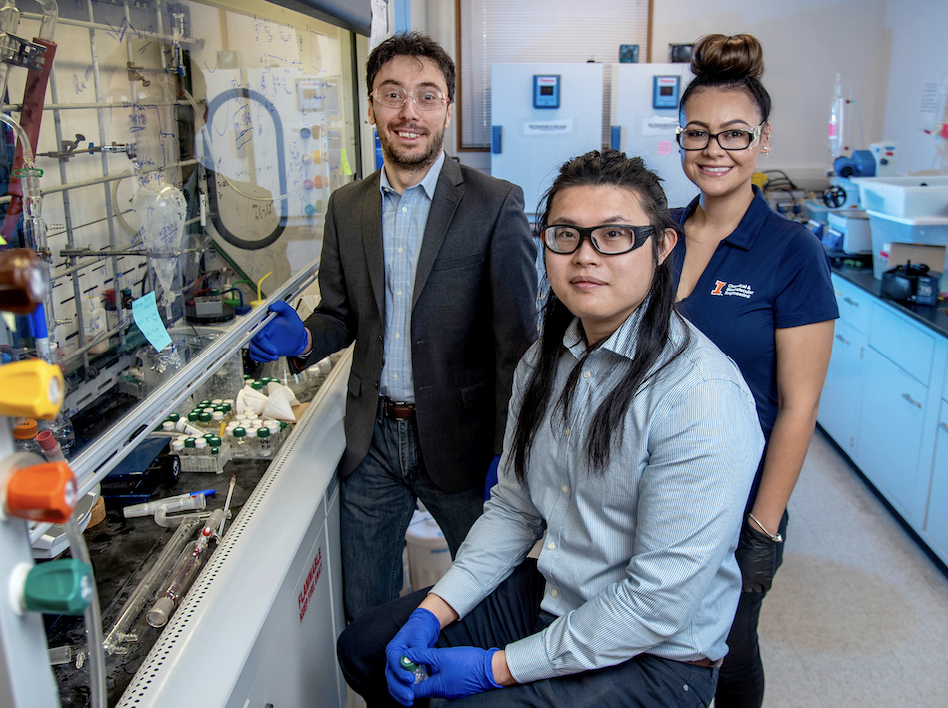
Canadian Plastics: ‘Breakthrough’ process boosts plastics recycling by transforming PE into PP
by Canadian Plastics

Developed by scientists at University of Illinois Urbana-Champaign, University of California, Santa Barbara, and Dow, the new process can reduce carbon emissions.

Chemical and biomolecular engineering professor Damien Guironnet and graduate students Vanessa DaSilva and Nicholas Wang demonstrated a new scalable process that can upcycle plastics. Photo Credit: Heather Coit/University of Illinois
Working with chemical maker Dow, scientists from the University of Illinois Urbana-Champaign and the University of California, Santa Barbara have developed what’s being described as a breakthrough process to transform the most widely produced plastic – polyethylene (PE) – into the second-most widely produced plastic, polypropylene (PP), which will significantly reduce greenhouse gas emissions (GHG).
The new study published in the Journal of the American Chemical Society announces a series of coupled catalytic reactions that transform PE, which is #2 and #4 plastic that make up 29 per cent of the world’s plastic consumption, into the building block propylene that’s the key ingredient to produce PP, also known as #5 plastic that accounts for close to 25 per cent of the world’s plastic consumption.
This study establishes a proof-of-concept for upcycling PE plastic with more than 95 per cent selectivity into propylene. The researchers have built a reactor that creates a continuous flow of propylene that can be converted into PP easily using current technology, which makes this discovery scalable and rapidly implementable.
This article originally featured in Canadian Plastics. Read the full version here.